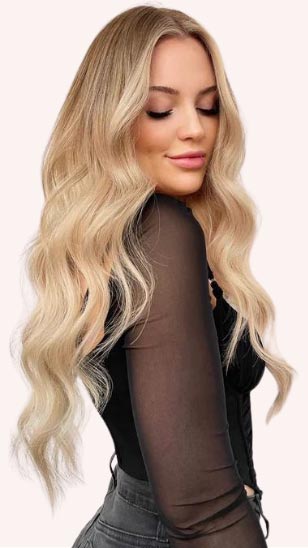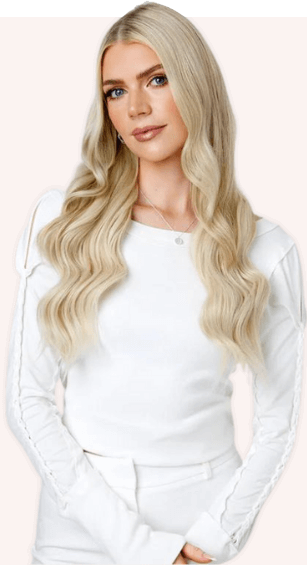When it comes to achieving that perfect, luscious mane, the choices seem endless. From an array of haircare products promising to work wonders to various treatments and extensions, the pursuit of beautiful, healthy hair can be both exhilarating and bewildering. One of the most crucial decisions you’ll face on this journey is whether between “chemically-treated hair vs virgin hair” which one should to opt. Each option has its own set of advantages and drawbacks, making it essential to understand the nuances before making a choice. In this blog, we’ll delve into the world of both chemically treated hair and virgin hair extensions to help you unravel the mystery and decide which one is truly the key to unlocking the locks of your dreams.
I. Chemically-Treated Hair vs Virgin Hair: What Are They?
Before we delve more into the world of both hair types to discover more about the differences as well as the final decision about which one is better, let’s find out what they are!
1. What Is Virgin Hair?
The term “virgin hair” has become widely recognized in the realm of hair extensions. Virgin hair refers to human hair that has never undergone any form of chemical treatment, such as dyeing, perming, or bleaching. It is hair in its purest and most natural state, typically collected from donors who have not subjected their hair to any damaging processes. This hair is highly sought after for use in hair extensions, wigs, and weaves because of its exceptional quality and authenticity.
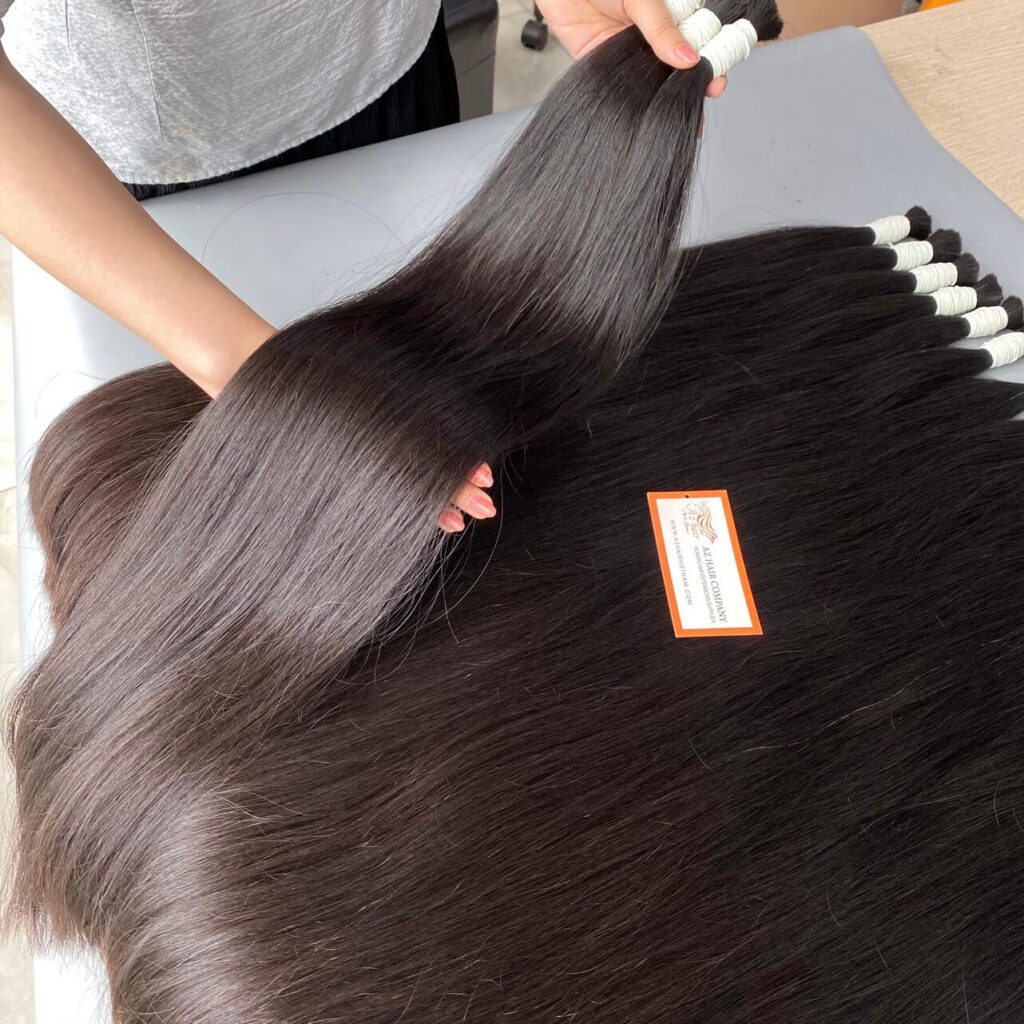
This hair has earned a reputation as the gold standard for hair extensions and wigs and for good reason. So why does it continue to reign supreme in the world of beauty and fashion? You can read HERE to find out more.
2. What is Chemically-Treated Hair?
Chemically-treated hair refers to hair that has undergone various chemical processes, such as coloring, perming, straightening, or relaxing. These treatments alter the natural structure of the hair to achieve the desired look. These chemical processes can include:


- Hair Coloring: This is one of the most common forms of chemical treatment. People use hair dye to change their hair color, either to cover gray hair or to achieve a different look.
- Bleaching: Bleaching is used to lighten the hair color. It involves the use of strong chemicals like hydrogen peroxide to remove the natural pigment in the hair shaft.
- Chemical Straightening: Chemical Straightening is a chemical process used to permanently straighten the hair. They typically use strong chemicals that alter the hair’s structure.
- Hair Perming: Perms involve using chemicals to create curls or waves in straight hair or to straighten curly or wavy hair. This process can be damaging to the hair if not done carefully.
II. Chemically-Treated Hair vs Virgin Hair: Advantages and Disadvantages
When it comes to hair extensions and wigs, there are various options available in the market, but two of the most common choices are chemically-treated hair and virgin hair. Both types have their pros and cons, let’s see their pros and cons!
1. Chemically Treated Hair - Pros and Cons
Chemically treated hair refers to hair that has undergone chemical processes such as coloring, perming, straightening, or relaxing. These treatments can have both advantages and disadvantages:
Pros:
- Variety of Styles and Colors: One of the main advantages of chemically-treated hair is the wide range of styles and colors available. You can find chemically treated hair extensions and wigs in virtually any color or texture, allowing you to experiment with different looks.
- Cost-Effective: Chemically-treated hair is generally more affordable because it can be mass-produced. This makes it a popular choice for individuals on a budget who want to change their hair frequently.
- Easier Maintenance: Maintaining chemically treated hair is relatively easy. You can style it using heat tools, wash it regularly, and use hair products without worrying too much about damage.
Cons:
- Damage: Chemical processes can weaken the hair’s structure, making it more prone to damage. Overuse or improper care can lead to breakage, split ends, and brittleness.
- Maintenance: Maintaining chemically treated hair requires regular touch-ups and specialized products to keep it healthy and vibrant.
- Allergic Reactions: Some individuals may experience allergic reactions or scalp sensitivity to the chemicals used in hair treatments.
2. Virgin Hair - Pros and Cons
Virgin hair refers to hair that has not undergone any chemical treatments, such as coloring, perming, relaxing, or straightening. It is in its natural state and typically represents the healthiest condition for hair. Here are the pros and cons of having virgin hair:
Pros:
- Strength and Durability: Virgin hair is often stronger and more durable than chemically-treated hair because it hasn’t been compromised by chemicals.
- Natural Shine: Virgin hair retains its natural shine and luster, giving it a healthy and vibrant appearance.
- Low Maintenance: Virgin hair typically requires less maintenance than chemically-treated hair, making it a good choice for those who prefer a simple haircare routine.
- Versatility: While it may not offer the same range of options as chemically-treated hair, virgin hair can still be styled and customized to some extent.
Cons:
- Limited Styling Options: Virgin hair may lack the styling options and versatility that chemically treated hair provides.
- Incompatibility with Certain Styles: Some hairstyles may be more challenging to achieve with virgin hair, especially if you have specific texture or color preferences.
- Natural Variations: Virgin hair can have natural variations in texture and color, which may not always be desirable for those seeking uniformity.
III. Chemically Treated Hair vs Virgin Hair: Which One Is Better?
Now that we’ve discussed the key characteristics of both chemically-treated and virgin hair, let’s compare them in different aspects to help you decide which one is better for you.
1. Chemically Treated Hair vs. Virgin Hair: Quality
While chemically-treated hair can look beautiful, it may not have the same level of quality as virgin hair. The chemicals used in processing can weaken the hair, leading to a shorter lifespan and more frequent replacements.
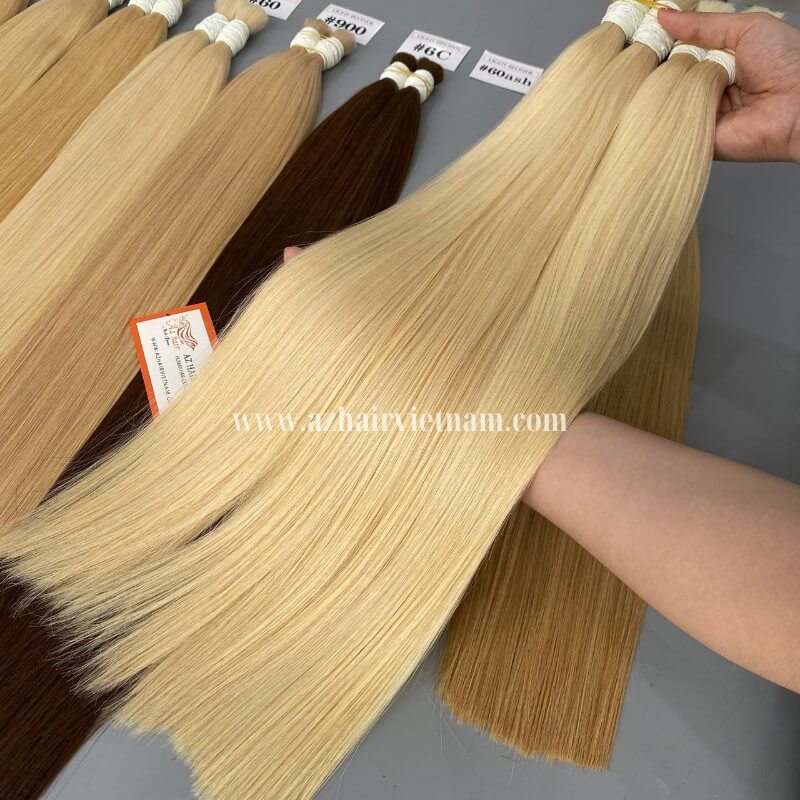
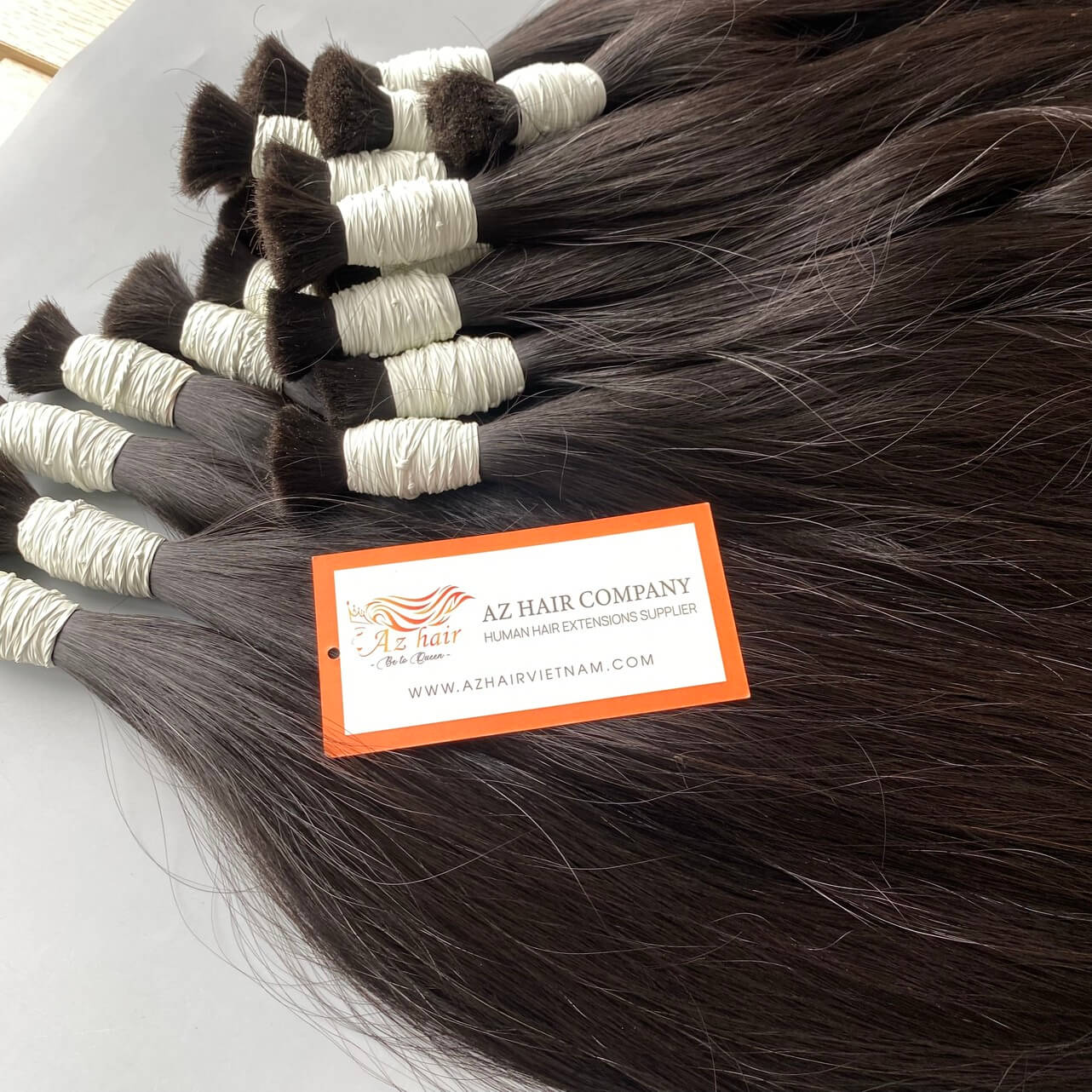
Virgin hair is renowned for its superior quality. It closely resembles natural hair and can last significantly longer, making it a top choice for those seeking premium extensions or wigs.
2. Natural Appearance
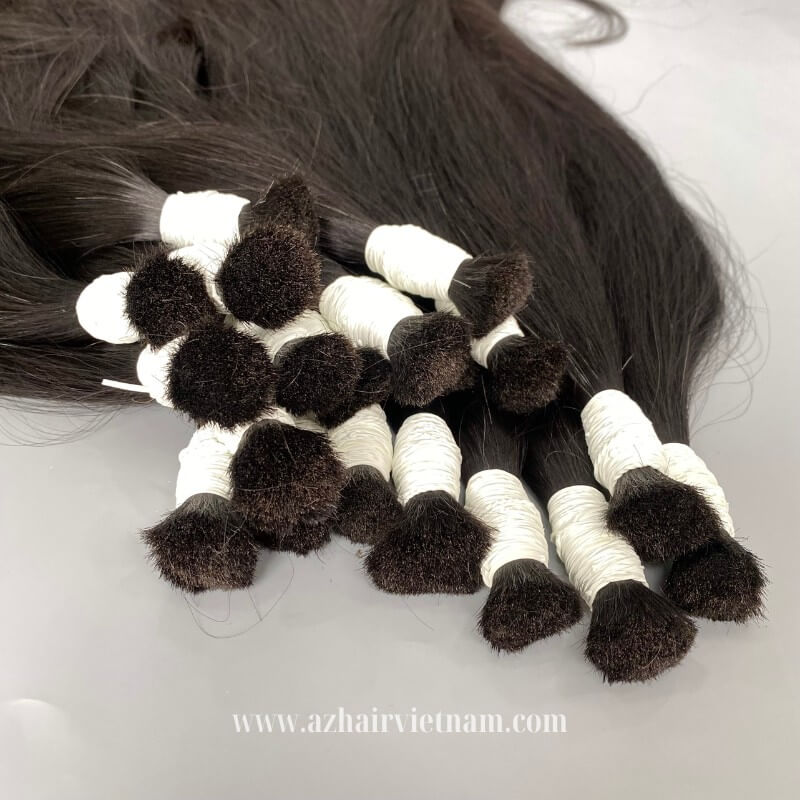
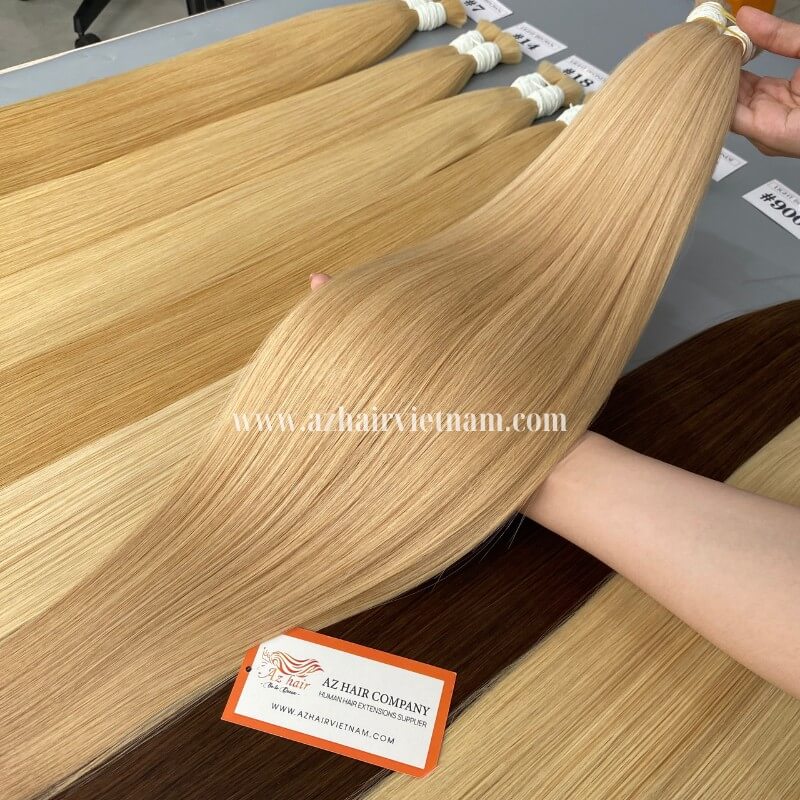
Chemically-treated hair can look natural, but it may not achieve the same level of realism as virgin hair. The texture and color may not perfectly match your own hair. While virgin hair excels in providing a natural appearance. The uniformity of the strands ensures a seamless blend with your natural hair, making it virtually indistinguishable.
3. Customization
Though chemically-treated hair offers a variety of styles and colors, it may not provide the same level of customization as virgin hair. Achieving a perfect match with your natural hair can be challenging. While virgin Hair is highly customizable. You can choose the exact specifications you desire, ensuring a perfect match and seamless integration with your existing hair.
4. Cost
Chemically-treated hair is generally more budget-friendly upfront. However, it may require more frequent replacements, potentially making it costlier in the long term. While virgin hair comes with a higher initial price tag, its longevity and quality make it a cost-effective choice over time, especially if you value durability and a natural appearance.
IV. Conclusion
The choice between chemically-treated hair and virgin hair ultimately depends on your individual preferences, lifestyle, and hair goals. If you prioritize versatility and are willing to invest time and effort into maintenance, chemically treated hair may be the right choice for you. On the other hand, if you value natural strength, low maintenance, and the beauty of your hair in its purest form, virgin hair could be your preferred option.


 BEST SELLING PRODUCTS
BEST SELLING PRODUCTS Wig Hair
Wig Hair WHOLESALE
WHOLESALE Contact us
Contact us Sale Events
Sale Events